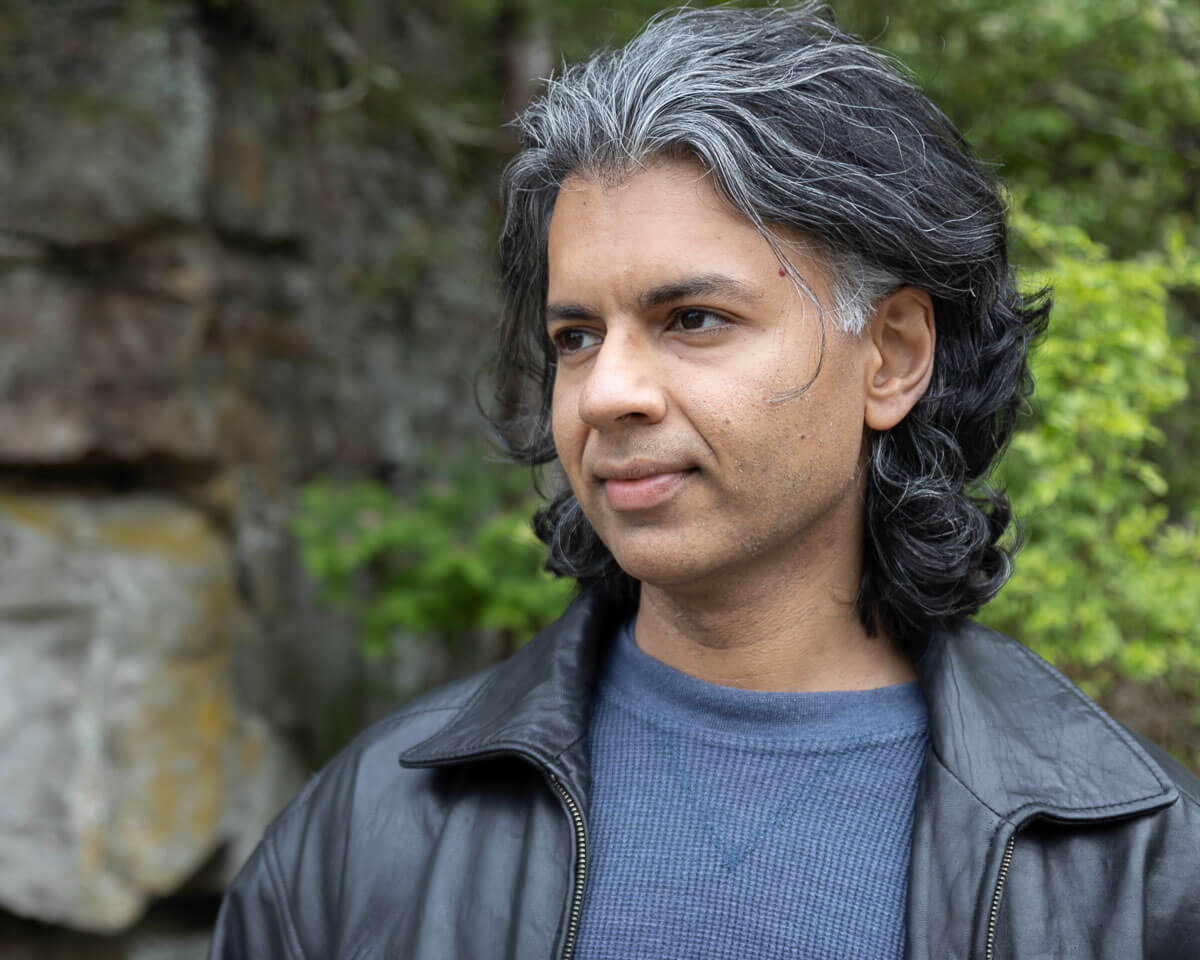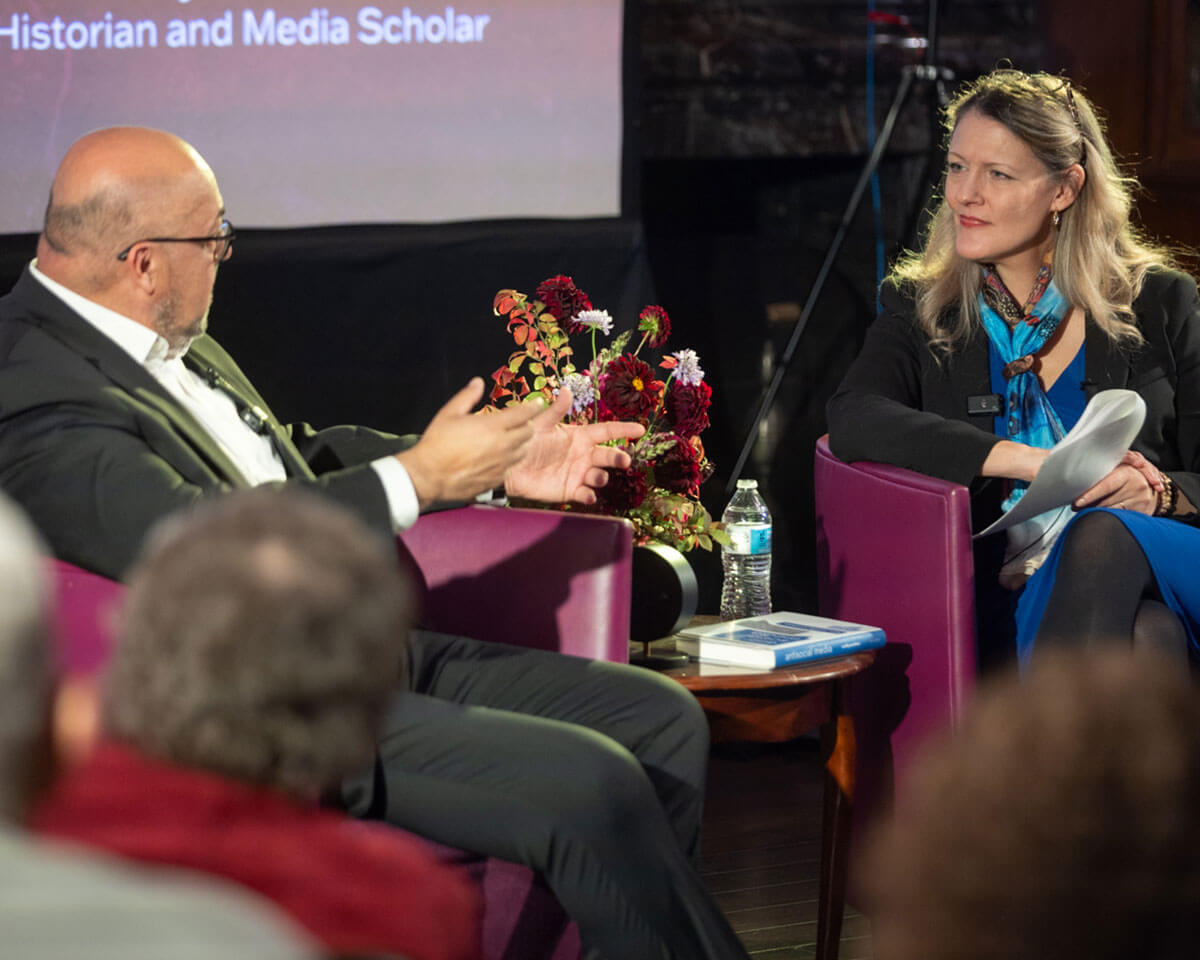Author Jai Chakrabarti ‘12 M.F.A. was born in Kolkata, India. When he immigrated to the United States at the age of nine, he wrote as a source of solace in his new environment. “I didn’t speak English well,” he says. “Writing was an opportunity to synthesize what I was feeling, seeing, and observing into the world of letters, and to shape them into narratives and stories.” Writing soon became a deep passion for Chakrabarti, who was encouraged by his teachers.
“It helped me create emotional support for myself,” says Chakrabarti. “It helped me figure out the constraints in the new culture I was assimilating into.”
Living in Jerusalem on a travel grant, Chakrabarti and his partner visited Yad Vashem, Jerusalem’s Holocaust memorial museum, on their last day in the city. They saw an exhibit called “Art in the Ghettos,” which explored the story of Janusz Korczak, a Polish Jewish educator, author, and head of a children’s orphanage. Korczack was a passionate protector of the children under his care in the Warsaw ghetto. Amid the suffering and looming deportation to the concentration camps, Korczack chose to stage a 1912 play, Dak Ghar, by renowned Bengali writer Rabindranath Tagore. Chakrabarti was taken by the extraordinary decision to mount a performance in the wake of unspeakable violence surrounding the orphanage. It was Korczack’s attempt to bring hope into the lives of the people in the ghetto. Two weeks later, all 192 children in the orphanage were deported to Treblinka. None of them survived.
Chakrabarti felt a personal connection to the story, as he had performed Dak Ghar during his childhood in India. It tells the story of a quarantined boy traveling the world through his imagination and serves as a central theme for the novel. Set in the Warsaw ghetto in 1942 and India and New York City in 1972, A Play for the End of the World follows multiple storylines, in which the characters use the play as an act of perseverance and protest. One of the protagonists, Jaryk Smith, a survivor of the Warsaw Ghetto, is tasked with collecting the ashes of his oldest friend, who died mysteriously in a rural village in India. When he comes upon a production of a play staged to protest against the Indian government, Smith recognizes it as one he performed in as a child in the Polish ghetto. Deep-seated feelings of survivor’s guilt surface as he grapples with whether he deserves the happiness that his girlfriend brings to him.
Writing the novel as his master’s thesis at Brooklyn College, Chakrabarti completed extensive research to maintain a foundation of historical accuracy. “I was lucky to find myself at Brooklyn College. I got to work with renowned expert on Holocaust literature, Dr. Robert Shapiro.” Through Shapiro’s Holocaust Literature class and under his continued guidance, Chakrabarti connected with several historical archives, traveling to Poland to work with historians there. He was able to access previously untranslated Korczak texts and visit the site of the former orphanage, adding to the novel’s vibrancy.
The author notes that he was surprised at the level of interconnection between cultures that existed decades before the introduction of the Internet. “One notable surprise during the writing process was being gifted a songbook used during the 1930s in Warsaw. Inside was a song by Tagore that had been translated into Yiddish and sung without knowledge of its Bengali origins.”
Originally trained as a computer scientist, Chakrabarti recalls gaining a sense of “the quality of deepening your craft” from his time in the M.F.A program and says that he learned that the writing process is not a race to get published, but instead to focus on the quality of work and a sense of lifelong apprenticeship. His work with Joshua Henkin, the director of the M.F.A. program in fiction writing at Brooklyn College, was instrumental in shaping his experience as a novelist, delivering eight pages of single-spaced feedback on Chakrabarti’s first draft. “He has a very analytical mind and was able to demystify the art of fiction writing in a way I had not seen anyone else do,” says Chakrabarti. “It makes the process more accessible to more students.”
His biggest piece of advice to prospective creative writing students is “to cultivate the discipline of writing because it is a muscle to be able to write for hours a day. And be open to experimentation and be open to finding a new voice.”
Jai Chakrabarti’s forthcoming collection of short stories, A Small Sacrifice for an Enormous Happiness (Knopf, 2023), explores familial connections between Indian and Jewish characters in the modern age.
Return to the BC Magazine



